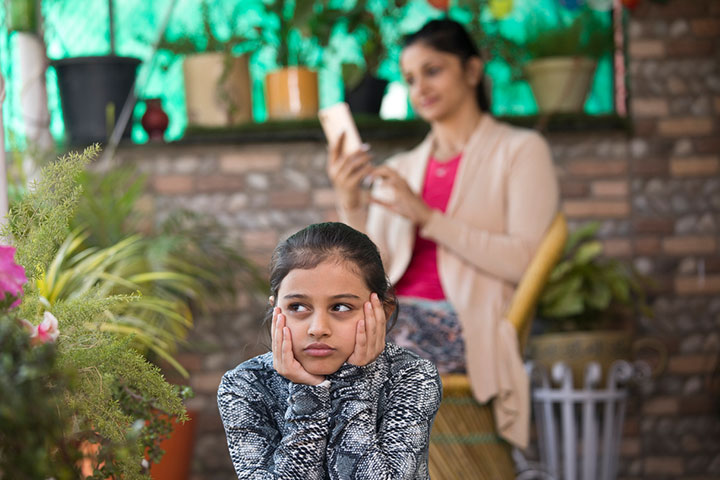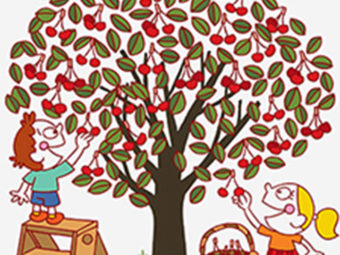
Image: Shutterstock
Parenting is a difficult job. From nursing and caring for your infant to raising them to be responsible human beings is challenging to say the least. It takes dedication, commitment, and perseverance to be the best parent at every stage. And then, parenting is not something that is taught to us. We learn as we go. There is no rulebook or set of guidelines that will direct parents to know when to do what. After all, every child is unique and you can’t use a one-size-fits-all approach when raising your child.
However, this doesn’t mean that you can’t strive to put in efforts at making your child learn and respect values. Wise parents make sure to guide their children and engage with them at all the important junctures of their lives. Keep reading to know how wise parents do things slightly differently than the average ones, giving them an edge in inculcating the best of habits and behaviors in their little ones:
Find A Healthy Balance In Spending Time With Your Children
Parents often want to spend as much time with their children as possible. The effort is commendable for sure but in doing so, parents often miss out on their own personal involvements. Such a habit can result in parents losing out on their hobbies and skills which they valued. In the long run, this can be very detrimental to the mental health of the parents. Loss of interest and skills often leads to a gradual loss of confidence in oneself. Keep this in mind and learn to take some time for yourself. Go ahead and take that break to read your favorite book or spend time with yourself doing something you love that you have been putting off. You will renew and rejuvenate yourself and when you come back to your children and family, they will love the more confident and happy version of you.
As for the children, even they need to be given some time of their own. Even from a young age children can be taught the importance of making their own decisions and not fully depend on their parents.
How You Deal With Your Child’s Problems
Troubles, worries, and complications are part and parcel of life. What makes you stand out is how you deal with them or let these issues affect you. A wise parent would try to find the source of a problem rather than focus on the consequences. Let’s say you catch your kid lying quite often. On one hand, you can punish and reprimand them. But this would further antagonize them and chances are they would not give up the habit (1). On the other hand, you can try to find the reason for your child’s lying habit and address it in a calm and understanding way.
Inculcating A Problem Solving Attitude In Your Child
Kids are curious. They probably bombard you with questions to feed their curiosity. But when they come to you for answers, what do you do? Do you spoon-feed them the answers, or do you teach them how to find the answers on their own? As a wise parent, it’s important to teach your kids how to find their own answers rather than simply giving them to help your kids. A problem-solving attitude developed from a young age will go a long way in helping your child find their way out of tough situations by being self-reliant and confident.
Not Being Overprotective Of Your Kid
There is no denying that you have to protect your child from the world. But there is a line between being concerned and being overprotective. It’s your responsibility to teach your child how to deal with failure rather than protect them from it. Your kid will learn better from failure than they will from success (2). So, the next time you’re tempted to shield your child from failure or disappointment, remember to ask yourself what kind of a parent you want to be — wise or average; and you’ll know the right answer!
Portray The Real You, Not Some Imaginary Version
Being a parent is not easy because you have to model the best behavior for your child. They look up to you and follow your example. So, the pressure to be on your best behavior always can be quite crippling. However, instead of putting on a front that you’re perfect to your kid, showing them that you make mistakes too can help them understand imperfection better. By showing them some of your flaws, you teach them that it’s natural to make mistakes but learning from them is what makes a difference. So, be wise enough to set a realistic example for your child.
Make Them See The Reason
Your kid would look up to you for guidance in knowing what’s right and what’s wrong. But instead of just letting them know that something is wrong or right, you could approach them from a different angle. Teach them to arrive at the decision by using logic and reasoning. You will be pleasantly surprised when your kid gradually adopts this method and starts making their own decisions in a judicious manner.
Keep Your Word!
Have you ever gone back on a promise you made to your child? Maybe you told them that you’d take them to the zoo but backed out because you had a long day at work. We get that you were tired and needed a break, but it’s important to keep your word. Your child will probably remember that you reneged on your word and may stop taking you seriously. Children observe their parents’ behaviors minutely and model themselves around them. If you want your child to be punctual and value given words, curb your own habits first.
Every parent wants to do the best for their child. But the wisdom in parenting does not come easily. It takes practice and a lot of patience to be a wise parent. However, with mindful parenting, you can surpass the average parenting techniques and be a super parent. We hope this article helps you step up your parenting game and raise your child in the best possible way. Do you have some wise parenting tips for us? Let us know in the comments below!
References
- Guidance for effective discipline. American Academy of Pediatrics. Committee on Psychosocial Aspects of Child and Family Health
https://pubmed.ncbi.nlm.nih.gov/9521967/ - Overprotective parenting and child anxiety: the role of co-occurring child behavior problems
https://pubmed.ncbi.nlm.nih.gov/22659077/



















